Reaction: The Studio, "The Promotion" & "The Oner" | Season 1, Episodes 1 & 2
I will purchase FYC ads for Sarah Polley with every dollar this post generates
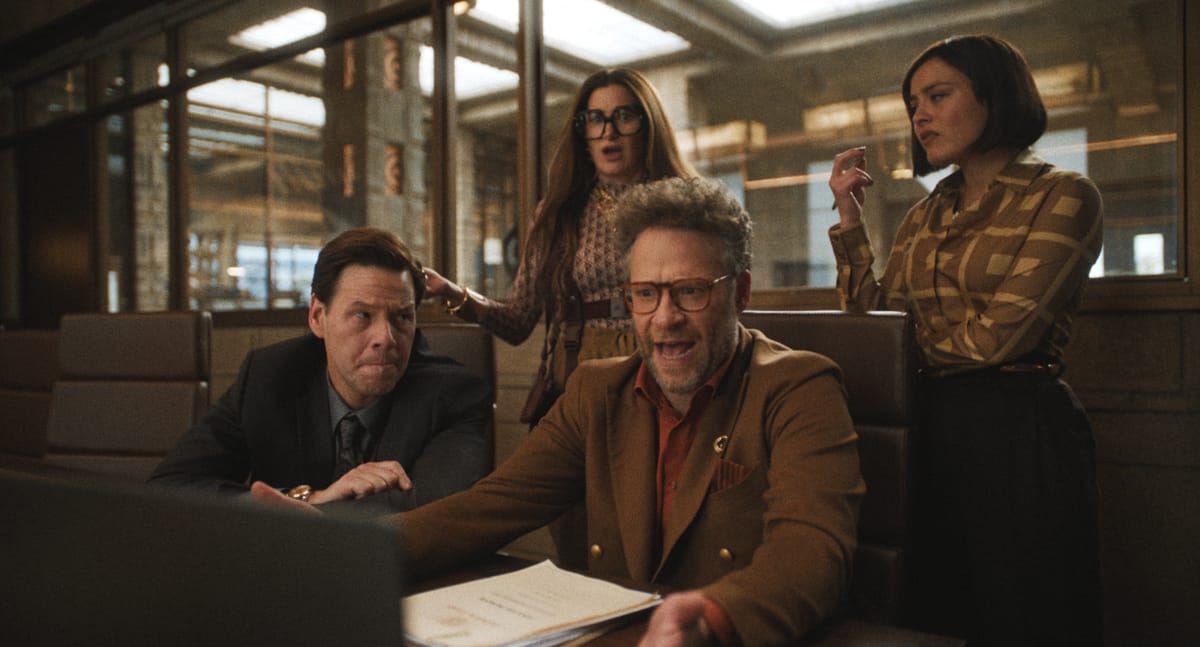
Welcome to Episodic Medium’s latest “reactions” series focused on Apple TV+ comedy The Studio, where all subscribers will get short-form responses to a show that we’re not covering in full for paid subscribers. What’s the logic of what shows gets reactions vs. reviews? Honestly, don’t know yet! You can find my logic for this one below, and join the conversation as a paid subscriber.
“At Continental, we don’t make films—we make movies.”
Within the first ten minutes of The Studio, Seth Rogen’s Matt Remick has sold his soul for Kool-Aid. After turning up his nose at the corporate mandate to meet with brands like Jenga or Rubik’s Cube while working under previous leadership, when the possibility of taking over Continental Pictures himself arises he seemingly abandons those principles for a film about an anthropomorphized pitcher of sugar water.
But when we jump ahead to his early days running the studio, Matt Remick hasn’t abandoned his principles at all. In fact, he’s told Variety that he believes box office success and critical acclaim can live side by side, and so he’s convinced that he has found a way to have it all: following the model of Greta Gerwig’s Barbie, he’s going to make the auteur-driven Kool-Aid movie.
I’m curious how viewers as a whole will understand Matt Remick as a character in this context. On the one hand, I would argue that a reader of this newsletter would be inclined to share his distaste for the film industry’s obsession with I.P., and therefore sympathize with his actual position about the task at hand. In addition, given the narrative we’re presented, he didn’t really have a choice about whether to make the Kool-Aid movie: his boss was fired for not relenting to the demands to broaden their appeal, and he wouldn’t even be considered for the job if he wasn’t willing to make Kool-Aid work.
On the other hand, though, Matt’s attempt to make an auteur Kool-Aid movie is wildly delusional. As he tries to convince David Krumholtz’s high-powered agent to get him meetings with Wes Anderson or Guillermo Del Toro, he’s told in very explicit terms to face the facts: just make the boring Nicholas Stoller Kool-Aid Man movie. It doesn’t sound exciting, and Matt Belloni is going to skewer him for it on his podcast, but do the thing the corporate execs are demanding so you can then make something you want to make after.
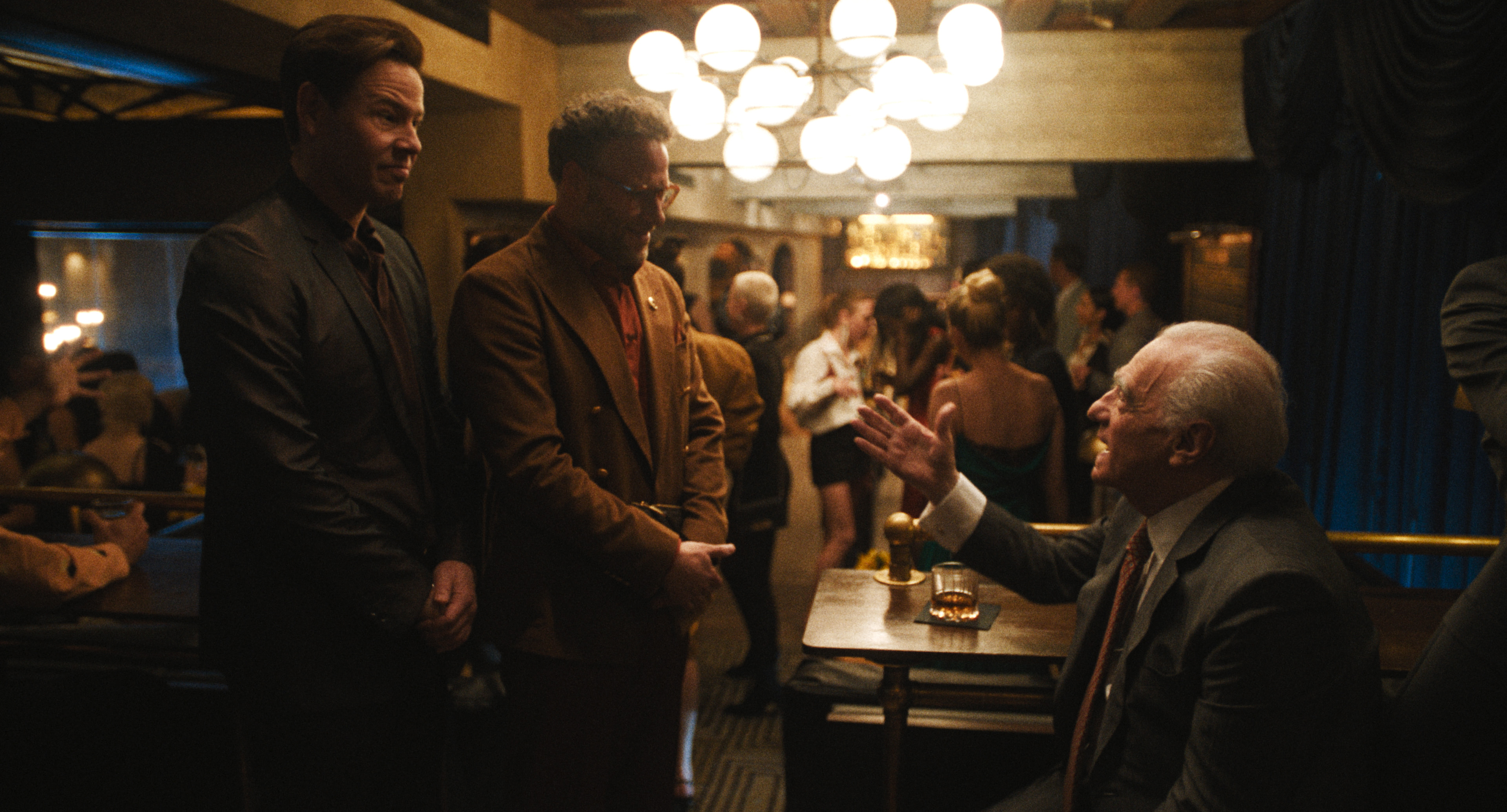
But then Matt stumbles into a galaxy brain solution, with Martin Scorsese serving up a Deus Ex Jonestown film that he can spin into a Kool-Aid project. Or, rather, that he can try to spin into a Kool-Aid project. The entire thing is inherently farcical, and that’s even before Kathryn Hahn makes a meal of “Steven Bus-chemi is the worst case sce-nario.” Even if you’re someone who resents the very idea of a Kool-Aid movie, and cringes when Hahn’s Maya emphasizes the value of Kool-Aid man doing a Tiktok dance, there’s really no defending Matt’s attempted compromise as a viable path forward for him as a character or for the studio.
“The Promotion” is an often very funny entry point to the world of The Studio, as Matt swiftly abandons his Scorsese compromise when push comes to shove, forcing him into a web of lies in an attempt to salvage Stoller’s original pitch. It sets clear expectations of what to expect: celebrity cameos from folks like Scorsese (who is extremely game), inside baseball takes on the state of the movie industry, and a comic rhythm that feels like the handheld camerawork is pulling you deeper and deeper into the chaos with each passing scene. But I’m not sure it offers clarity on how we’re supposed to see Matt Remick, and whether we believe he’s actually a competent executive notwithstanding the necessary compromises of his position, and it’s something that nagged at me throughout the first season.
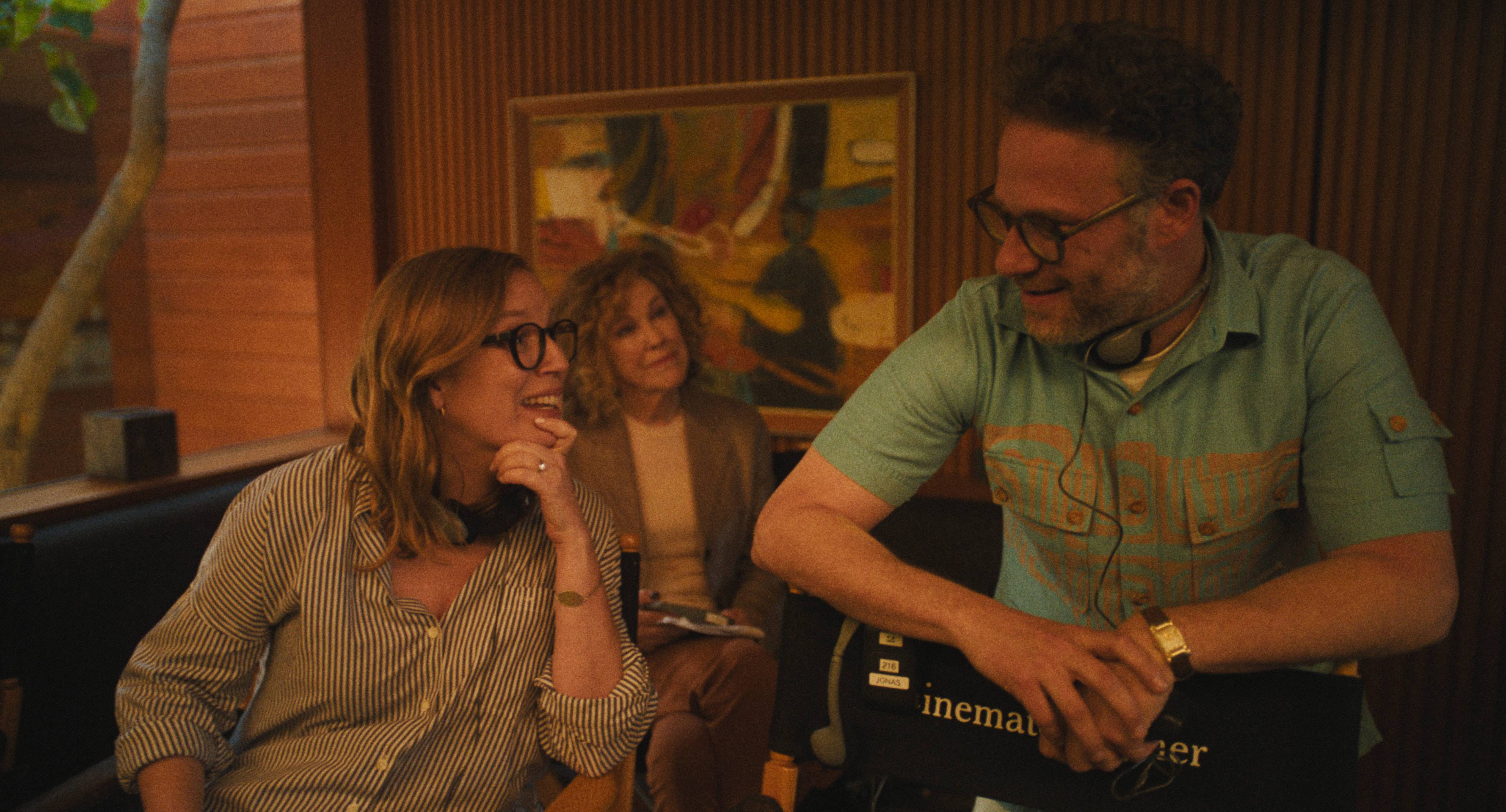
Yes, I’ve seen the whole season, which is part of why I’m doing “reactions” instead of “reviews.” I enjoyed The Studio, but sometimes episodes that highlight its strengths depend on selling out its characters. “The Oner,” the second of two episodes Apple debuted today, is a delightful meta-comic setup as Matt and Sal visit the set of a Sarah Polley movie for the filming of the climactic “oner.” As someone who shares Matt’s enthusiasm about this particular stylistic choice, it was extremely satisfying to quickly realize the episode itself would be presented as a single take (although they’re definitely hiding some seams), and Polley is honestly pitch-perfect as a director just trying to shoot her scene and convince the studio to shell out for a Rolling Stones song. It’s not a long episode, but it’s constructed so perfectly as every small decision early on—the parking of the car, the change in wardrobe, etc.—snowballs into a catastrophe by the time Matt and Sam are driving back down the hill to that expensive Rolling Stones song.
But I spent the episode—which I watched right after the premiere—struggling with how clueless Matt was within. If we go back to how Matt was on set in the premiere, he’s definitely a little awkward as he tries to connect with Paul Dano, establishing that he isn’t as “great on set” as he claims to be now that he’s studio head. The plot of “The Oner” requires him to be wildly full of himself, but the behavior he exhibits here strikes me more as the kind of bluster we saw from Ike Barinholtz’s Sal in the premiere, as opposed to the unprincipled but ultimately savvy sensibilities I thought we saw with Matt. The episode absolutely works as a contained vignette of an egotistical studio executive fumbling his way through a manic day on set, and perhaps the argument is that he couldn’t think with his cinephile “boner” running the show, but it left me somewhat perplexed about how I was supposed to think about Matt’s competence as we progressed into the rest of the season.
That season will have more continuity than these episodes suggest, for what it’s worth, but vignettes like “The Oner” appear throughout, interspersed with episodes that explore the ongoing development of the Kool-Aid film. This balancing act helps the season maintain its comic energy, but I struggled at times to keep track of whether anyone in this show was really meant to have any kind of compass, moral or otherwise. As a result, I’m curious to see how others respond to the season as it progresses, as it really resists a fully serialized approach to telling this story while nonetheless committing to some of what you’d expect from that.
Stray observations
- I couldn’t help but think about HBO’s The Franchise, which took a similarly vignette-like approach to telling its story about the behind-the-scenes of superhero films and also struggled to offer clear continuity in terms of its characters. I think The Studio is a consistently funnier show, and one that I’d recommend more easily, but they share some of the same problems from a design perspective.
- Seriously, Sarah Polley deserves a Guest Actress nomination for this. As she acknowledged to the CBC, she had a blast doing it, and you can tell. Whereas Scorsese has a lot of fun, you can kind of tell he’s playing a heightened version of himself, but Polley’s acting background and more grounded persona create a much blurrier line that I thought was the perfect fit for that dynamic.
- Catherine O’Hara gets to make a meal out of Patty’s meltdown and then as a more solid presence during the oner, but be prepared she pops in and out as the season progresses (which makes sense in terms of how they’re using her as an Amy Pascal-esque figure who pivoted to producing).
- When it’s the first episode of a show with lots of cameos—there will be lots of cameos—you don’t always know just how many you’re going to be getting. It felt pretty safe that we’d get to see Charlize Theron after the namedropping of her party, since she and Rogen have worked together before, but I admittedly got caught offguard when Buscemi himself showed up.
- Welcome to my reactions to The Studio. I’ll be dropping in weekly, but sometimes maybe with only a paragraph or two. I’ll admit I’m not sure there’s enough depth in all these episodes to warrant full coverage, but Friend of the Newsletter Keith Phipps is covering it over at Vulture, and if there’s interest and the show returns for a second season, we’ll consider revisiting that in the future.
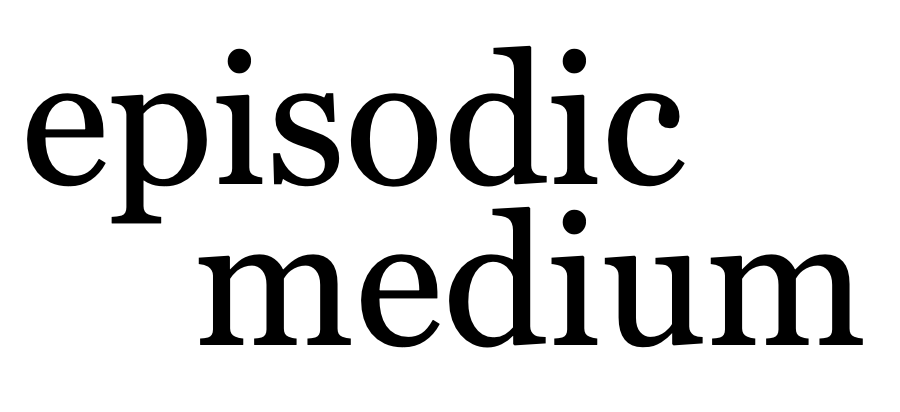
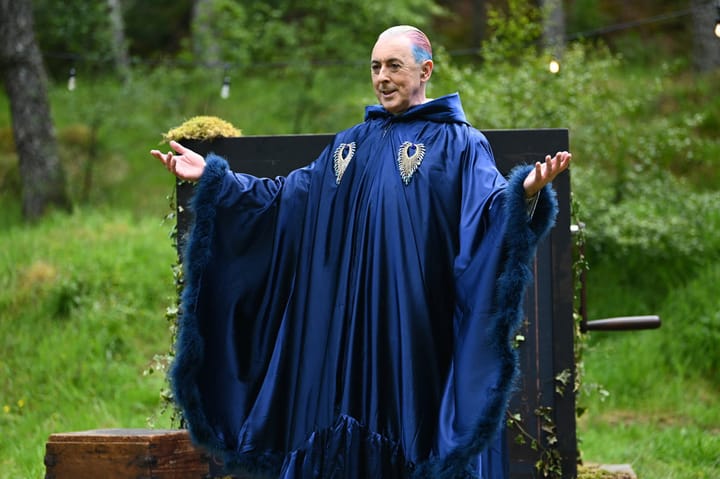
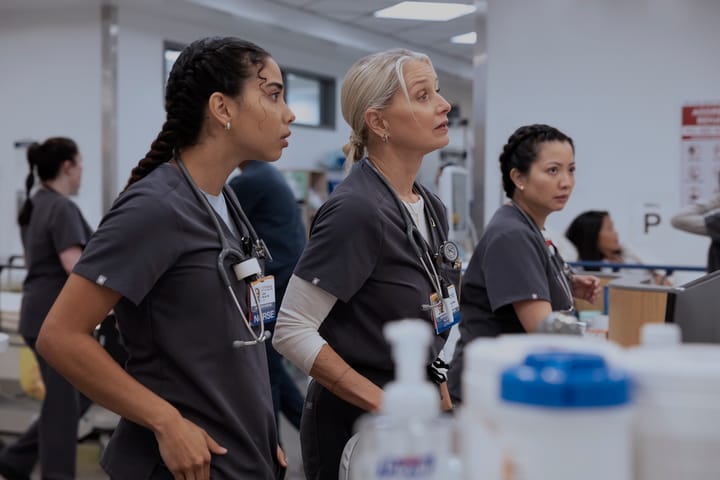

Comments ()